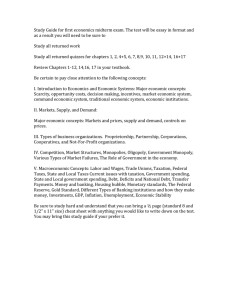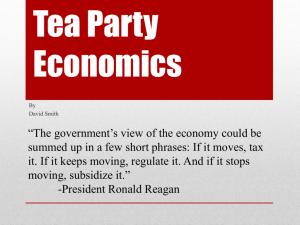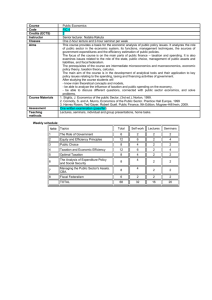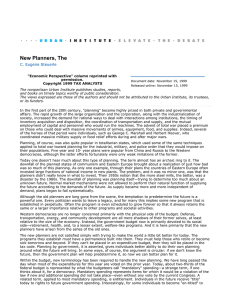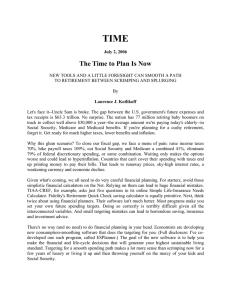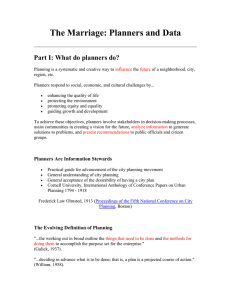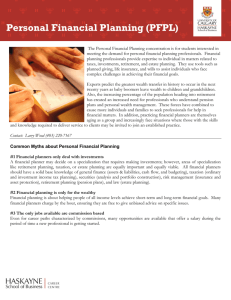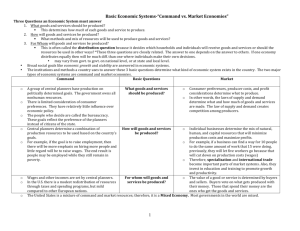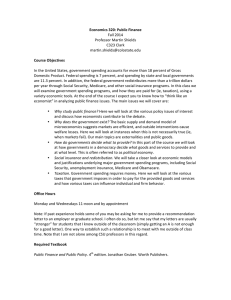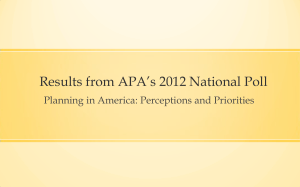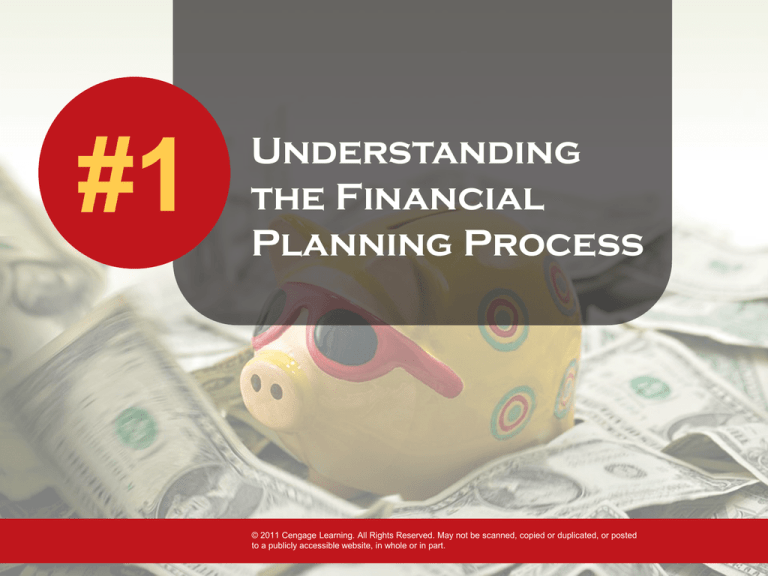
#1
Understanding
the Financial
Planning Process
© 2011 Cengage Learning. All Rights Reserved. May not be scanned, copied or duplicated, or posted
to a publicly accessible website, in whole or in part.
The Rewards of
Sound Financial Planning
• Maintain and improve
standard of living
• Control spending in order to
live well today and tomorrow
• Accumulate wealth
Improving Your Standard
of Living
Average American Family
The Personal Financial
Planning Process
Systematic process that considers
important elements of an
individual’s financial
affairs in order to
fulfill financial goals
Six-Step Financial
Planning Process
1. Define financial goals
2. Develop financial plans and strategies
3. Implement financial plans and strategies
4. Develop and implement budgets
5. Use financial statements to evaluate results
6. Redefine goals, revise plans as situations
change
The Role of Money
• Medium of exchange used to
measure value
• Utility amount of satisfaction
derived from purchases
versus cost
• Link to personal psychological
concepts and key role in
personal relationships
Attain Your Financial Goals
• Set specific goals and focus on results
• Make goals realistic
• Involve family members
and others
• Prioritize goals and set
a time frame
Put Target Dates on
Financial Goals
• Short-term
in the next year
• Intermediate-term
the next 2-5 years
• Long-term
6 years or more
From Goals to Plans:
A Lifetime of Planning
•
•
•
•
•
•
Early childhood
High school and college
Family formation
Career development
Pre-retirement
Retirement
Personal Financial Planning
Life Cycle
How a $1,000 Investment
Grows over Time
Plans to Achieve Your Financial
Goals
• Asset acquisition planning
• Liability and insurance planning
• Savings and investment planning
• Employee benefits planning
• Tax planning
• Retirement and estate planning
Using Professional Financial
Planners
Types of planners
• Commission-based – earn commission
on financial products sold
• Fee-only – charge fees based on
complexity of the plan
The Planning Environment
Financial planning takes place in a
dynamic economic environment
created by the actions of
Government
Business
Consumers
Financial Planning Environment
Government
• Federal government plays a major
role in regulating the level of
economic activity
• Taxation and regulation constrain
personal financial planning
The Economy
Monetary Policy
• Controls money
supply
• Used to stimulate or
contract economic
growth
Fiscal Policy
• Controls levels of
taxation
• Sets levels of
government
spending
The Economy
Economic Cycles
Inflation
• Stages related to
employment and
production levels
• Growth measured
by changes in
GDP
• Measured by changes
in CPI
• Affects purchasing
power and interest
rates
• Affects financial plans
and goals
The Economic Cycle
What Determines Your
Personal Income?
• Demographics and income
– Age, marital status
• Education
• Where you live
• Career


